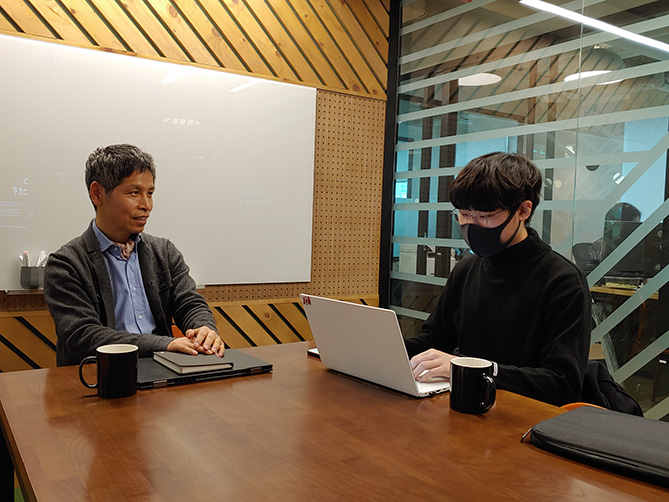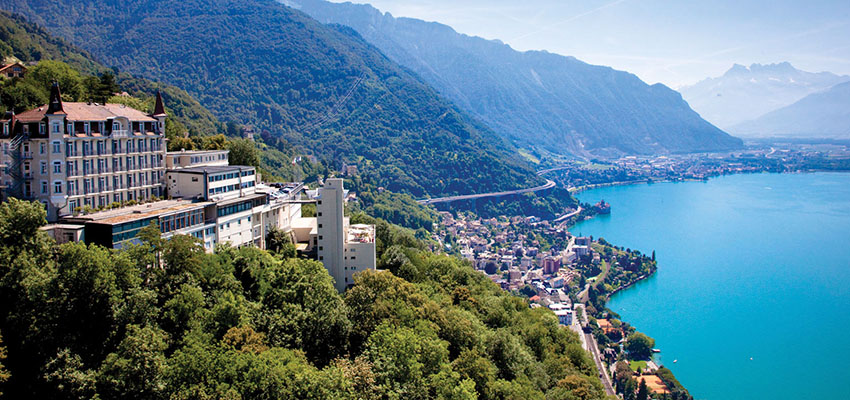With the advent of the digital age and artificial intelligence, there has been much talk about the types of jobs that will eventually disappear and those that will stay. One job field that is expected to stay (and even flourish), is hospitality management. A report about job outlooks on Job.net showed that the hospitality industry is the fastest growing industry besides health care. In the U.S.A. alone, 2.7 million new jobs have been created in 2011, with the employment within this industry growing at 17 percent in a span of ten years between 2004 and 2014. According to career.go.kr, an online career guidance site operated by Korea Research Institute for Vocational Education & Training, the importance of leisure is increasing and leisure-related industries will follow suit, which will in turn boost the hotel management industry.
I was not so familiar with the term until I attended an information session by Glion Korea, an agent for Glion Institute of Higher Education, a well-known school for its hospitality management program in Switzerland. I sat down with the Managing Director of Glion Korea, Shinhee Youn, to ask him about hospitality management in general and about studying at Glion. Youn first explained that hospitality management used to be better known as “hotel management,” but was changed to hospitality management because the scope of labor extends beyond hotels to also conclude international event management, resort management, experiential industry management (such as theme parks and sports events), and even luxury brand management.

For the answer to the question about how this school is different from other colleges, Youn said that unlike other colleges where students learn basic first year subjects, students at Glion get a hands-on experience during the “Hospitality Excellence Practical Arts” course, which includes cleaning bathrooms, changing bed sheets, cooking in four different kitchens, serving food, and also washing the dishes. Overall, the students learn to do everything that is required to run a hotel, and this way, they find out what knowledge, labor, and effort is required of them. When the first semester, which is known to be the toughest semester, is over, all students go through an internship in a field that most interests them. They have another semester of internship before graduation, and the two internships count as work experience on their resumes. There are almost 100 different nationalities studying on Glion campus, and in each class room there are at least about 20 different nationalities.
The lines of work that hospitality management graduates pursue are diverse, according to Youn. About half work in the hotel business, while the other half forays into other areas like banking, finance, consulting, event management, sports management, education, and even luxury retail management. (A recent retiree of Nike Korea is a Glion graduate.)
The first Korean student to study at Glion was in 1967 who was sent on national scholarship, hoping to expand and develop the tourism industry in Korea. He went on to head the Walkerhill Hotel until his retirement. Again in 1971, the government sent two more students to Glion for similar purposes. Korean students opt for various internships, and one notable student is spending his second semester at the Um Hong Gil Human Foundation to work as an event management staff. This explains the diverse jobs hat hospitality management graduates can pursue.

I asked Youn about the criteria required to be accepted into a hospitality management school and if there are many Korean students enrolled in this school. He explained that a motivational essay and the interview are the most important factors for deciding whether to accept a student or not at Glion. This means that students have to be certain that this field of study is what they want. Students also need to prove their English proficiency with at least 5.5 on the IELTS or 70 on the TOEFL. As for Korean students, Youn explained that approximately 15 students enter this school every year, with sight variation in this number each year. There are many other schools offering hospitality management programs, not only in Switzerland but also in many other countries, and it is a field of study that is worth considering.
“We are the world.” Isn’t it a good term to represent how global the world is now? The more connected countries are and the more nationalities mix, the higher the demands will be for hospitality management workers. If this interests you, why not study hospitality?

Sewon Han
Sophomore
Shepherd International Education

